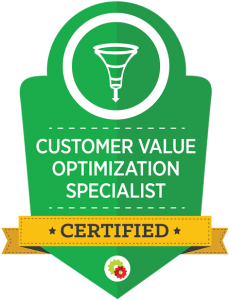Personalizing Your Customer Experience with AI-Powered Email Marketing
In today’s digital age, customers expect more than just generic marketing messages; they want personalized, relevant, and timely content that speaks directly to their needs. Email marketing remains one of the most effective channels for reaching audiences, but to truly stand out, businesses must leverage the power of AI to enhance their email campaigns. AI-powered email marketing allows businesses to personalize the customer experience like never before, driving higher engagement, conversions, and loyalty. This article will explore the benefits, strategies, and best practices of using AI to personalize your email marketing efforts.
Introduction
Email marketing has been a staple of digital marketing for decades, but as inboxes become increasingly crowded, the need for personalization has never been greater. Generic email blasts are no longer enough to capture the attention of today’s savvy consumers. Instead, businesses must focus on delivering personalized experiences that cater to individual preferences, behaviors, and needs. AI-powered email marketing makes this possible by analyzing vast amounts of data to create highly targeted and relevant email content. From personalized product recommendations to dynamic email content, AI-driven strategies are transforming how businesses connect with their audiences.
What is AI-Powered Email Marketing?
AI-powered email marketing uses artificial intelligence technologies like machine learning, natural language processing, and predictive analytics to enhance email campaigns. These technologies enable marketers to analyze customer data, predict behavior, and automate personalized email content tailored to each recipient. Unlike traditional email marketing, which relies on manual segmentation and generic messaging, AI-driven campaigns are dynamic, data-driven, and highly personalized.
AI-powered email marketing can help businesses achieve a range of objectives, including:
- Personalized Content: AI can analyze customer data to create personalized email content that resonates with each recipient, enhancing engagement.
- Behavioral Targeting: AI allows marketers to send emails based on customer actions, such as browsing behavior, past purchases, or abandoned carts.
- Optimized Send Times: AI algorithms can determine the best time to send emails based on when individual recipients are most likely to open and engage with them.
- Predictive Analytics: AI can predict future customer behavior, such as the likelihood of a purchase, enabling more targeted email campaigns.
The Importance of Personalization in Email Marketing
Personalization is no longer a luxury—it’s a necessity. Customers are bombarded with emails daily, and they are quick to delete anything that doesn’t immediately capture their interest. Personalizing your emails can dramatically improve open rates, click-through rates, and overall engagement. Here’s why personalization is crucial in email marketing:
- Increased Engagement: Personalized emails are more relevant to the recipient, making them more likely to engage with the content.
- Higher Conversion Rates: Emails that speak directly to the recipient’s needs and preferences are more effective at driving conversions.
- Enhanced Customer Loyalty: Personalization shows customers that you understand and value them, fostering a deeper connection and long-term loyalty.
- Reduced Unsubscribes: By delivering relevant content, personalized emails reduce the likelihood of recipients unsubscribing from your list.
Key AI Technologies Used in Email Marketing
AI encompasses a variety of technologies that can be used to enhance email marketing efforts. Understanding these technologies is essential for implementing AI-powered personalization effectively.
Machine Learning (ML)
Machine learning algorithms learn from data to identify patterns and make predictions. In email marketing, ML can be used to segment audiences, predict customer behavior, and optimize email content.
- Use Case: ML can predict which products a customer is most likely to purchase based on their past behavior, allowing for personalized product recommendations in emails.
Natural Language Processing (NLP)
NLP enables computers to understand and interpret human language. In email marketing, NLP can be used to create personalized subject lines, tailor email copy, and analyze customer sentiment.
- Use Case: NLP can generate subject lines that are more likely to resonate with individual recipients based on their past engagement.
Predictive Analytics
Predictive analytics uses historical data to forecast future outcomes. In email marketing, this technology helps identify the best times to send emails, the likelihood of a customer taking a specific action, and which content will drive the most engagement.
- Use Case: Predictive analytics can determine the optimal time to send an email to each recipient, maximizing open rates.
Dynamic Content Generation
AI can create dynamic email content that changes based on the recipient’s preferences, location, or behavior. This allows marketers to deliver highly personalized messages that are relevant and engaging.
- Use Case: An email promoting a sale can display different products based on the recipient’s past purchases or browsing history.
How to Leverage AI for Personalizing Your Email Marketing
Implementing AI-powered email marketing requires a strategic approach. Here’s how you can leverage AI to create personalized email campaigns that resonate with your audience:
1. Collect and Analyze Customer Data
The foundation of AI-powered personalization is data. To deliver personalized experiences, you need to collect and analyze data from various sources, including website behavior, past purchases, email engagement, and customer demographics.
- Data Sources: Use data from your CRM, website analytics, and past email campaigns to build a comprehensive profile of each customer.
- Behavioral Data: Track customer actions such as clicks, opens, and browsing patterns to understand their interests and preferences.
2. Segment Your Audience Using AI
Audience segmentation is the process of dividing your email list into smaller groups based on shared characteristics. AI takes segmentation to the next level by automatically identifying patterns and creating micro-segments that are highly targeted.
- Behavioral Segmentation: Group customers based on their past actions, such as purchase history or website visits.
- Predictive Segmentation: Use AI to predict which customers are most likely to engage with specific types of content, allowing for more precise targeting.
3. Personalize Email Content with Dynamic Elements
Dynamic content allows you to create personalized emails that change based on the recipient’s data. AI can automatically insert personalized elements such as product recommendations, special offers, and tailored messages.
- Product Recommendations: Include personalized product recommendations based on the recipient’s past behavior.
- Location-Based Content: Show different content based on the recipient’s location, such as store promotions or local events.
4. Optimize Subject Lines and Email Copy
AI-powered tools can help craft personalized subject lines and email copy that resonate with your audience. These tools analyze past engagement data to identify the language, tone, and keywords that are most effective for each recipient.
- Subject Line Optimization: Use AI to generate subject lines that are likely to capture the recipient’s attention based on their past interactions.
- Sentiment Analysis: Analyze customer sentiment to tailor the tone of your email copy, ensuring it aligns with the recipient’s preferences.
5. Automate Send Times for Maximum Engagement
Timing is crucial in email marketing. AI can analyze when each recipient is most likely to engage with your emails and automatically schedule sends for those optimal times.
- Send Time Optimization: Use AI algorithms to determine the best time to send each email, increasing the likelihood of it being opened and read.
- Time Zone Adjustments: Automatically adjust send times based on the recipient’s location to ensure emails arrive at the right time.
6. Implement AI-Driven A/B Testing
A/B testing allows you to compare different versions of an email to see which performs better. AI can streamline this process by automatically testing multiple variables and learning from the results to optimize future campaigns.
- Test Subject Lines, CTAs, and Layouts: Use AI to test different elements of your emails and identify which combinations drive the highest engagement.
- Continuous Learning: AI learns from each test, refining your email strategy over time for ongoing improvements.
7. Use Predictive Analytics for Future Planning
Predictive analytics can forecast customer behavior, helping you plan your email marketing strategy with precision. By predicting which customers are likely to churn, purchase, or engage, you can tailor your campaigns to address these predictions.
- Churn Prediction: Identify customers who are at risk of unsubscribing and target them with re-engagement emails.
- Purchase Propensity: Predict which customers are most likely to buy and send targeted offers to drive conversions.
Benefits of AI-Powered Email Marketing Personalization
Using AI to personalize your email marketing offers a range of benefits that can significantly enhance the customer experience and drive business growth. Here are some key advantages:
Increased Relevance and Engagement
Personalized emails are more relevant to the recipient, making them more likely to engage with the content. AI ensures that each email is tailored to the individual’s preferences, boosting open and click-through rates.
Higher Conversion Rates
AI-powered personalization can significantly increase conversion rates by delivering the right message to the right person at the right time. Personalized product recommendations, targeted offers, and dynamic content all contribute to higher conversion rates.
Improved Customer Retention
By delivering personalized experiences that resonate with customers, AI-powered email marketing helps build stronger relationships, leading to improved customer retention and loyalty.
Scalable Personalization
AI allows businesses to personalize emails at scale, something that would be impossible to achieve manually. This scalability means that even as your email list grows, you can continue to deliver personalized content to each recipient.
Actionable Insights
AI-driven analytics provide valuable insights into customer behavior, helping you refine your email marketing strategy. These insights can inform everything from content creation to audience segmentation, ensuring your campaigns are always optimized for success.
Common Mistakes to Avoid in AI-Powered Email Marketing
While AI-powered email marketing offers significant benefits, there are common pitfalls to be aware of. Avoiding these mistakes can help ensure your campaigns are effective and well-received.
Over-Personalization
While personalization is key, it’s possible to go too far. Over-personalization can come across as invasive, making customers feel uncomfortable. Balance personalization with respect for privacy.
Ignoring Data Privacy Regulations
With increased scrutiny on data privacy, it’s essential to ensure your email marketing practices comply with regulations like GDPR and CCPA. Always obtain consent before collecting data and be transparent about how you use it.
Neglecting to Monitor Performance
AI-powered email marketing is not a set-it-and-forget-it solution. Regularly monitor performance metrics and adjust your strategy based on the insights gained to keep your campaigns effective.
Using Outdated Data
Personalization relies on accurate, up-to-date data. Using outdated information can lead to irrelevant content that damages customer trust. Regularly clean and update your data to ensure accuracy.
FAQs
What is AI-powered email marketing?
AI-powered email marketing uses artificial intelligence to analyze data, automate content creation, and personalize emails for each recipient, enhancing engagement and driving conversions.
How can AI improve email personalization?
AI improves email personalization by analyzing customer behavior, predicting preferences, and generating tailored content that resonates with individual recipients, resulting in more relevant and engaging emails.
What are the benefits of using AI in email marketing?
Benefits include increased engagement, higher conversion rates, improved customer retention, scalable personalization, and actionable insights that help refine your marketing strategy.
How does AI optimize send times in email marketing?
AI algorithms analyze past engagement data to determine the best time to send emails to each recipient, increasing the likelihood of opens and clicks by targeting optimal send times.
What types of AI technologies are used in email marketing?
Key AI technologies include machine learning, natural language processing, predictive analytics, and dynamic content generation, all of which enhance the personalization and effectiveness of email campaigns.
How can I start implementing AI in my email marketing strategy?
Start by collecting and analyzing customer data, using AI to segment your audience, personalize email content, optimize send times, and continuously test and refine your campaigns using AI-driven insights.
Conclusion
Personalizing your customer experience with AI-powered email marketing is no longer just an option; it’s a necessity in today’s competitive digital landscape. By leveraging AI, businesses can deliver tailored content that speaks directly to the needs and preferences of each recipient, driving higher engagement, conversions, and loyalty. From dynamic content to predictive analytics, AI offers a wealth of opportunities to enhance your email marketing strategy. Start integrating AI into your email campaigns today, and watch your customer relationships—and your bottom line—grow stronger.











